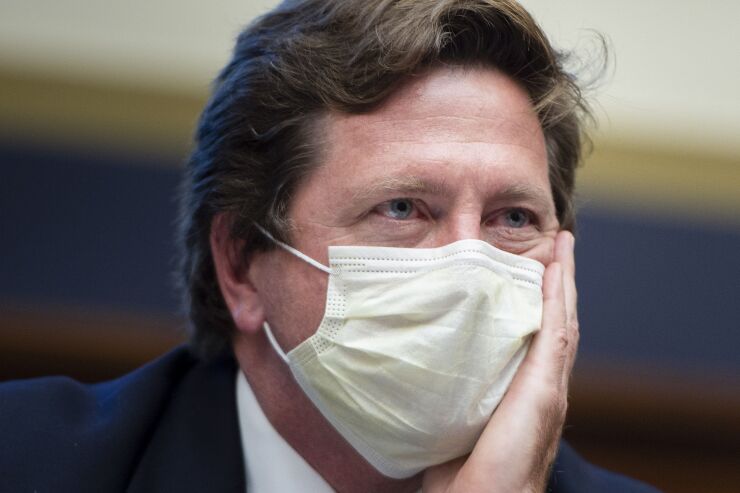The Securities Industry and Financial Markets Association misperceived the motives of a temporary conditional exemption for municipal advisors, according to the Securities and Exchange Commission.
Late last week, the SEC filed a motion in the U.S. Court of Appeals in Washington D.C., and said the court should oppose SIFMA’s motion to add news articles to the administrative record.
In a separate brief filed at the end of November, SIFMA accused the SEC of relying on news articles, including The Bond Buyer, that detailed market disruption, but ignored those same news sources indicating that the disruption had ended before June when the SEC issued the TCE.

“SIFMA’s motion is premised on the mistaken notion that the Commission’s ‘only rationale for adopting the 2020 order’ was the order’s opening reference to the disruption from the growing COVID-19 crisis that hit the municipal securities trading markets in March 2020,” the SEC said.
Instead, the SEC said it also based the TCE on increased unbudgeted costs by municipalities coupled with revenue uncertainty because of the pandemic. Combined with many issuers turning to private placements as an alternative to the primary market, that led to the creation of the TCE, the SEC said.
The TCE allows non-dealer MAs to facilitate certain private placements of municipal bonds. SIFMA announced its legal challenge in August. The TCE is set to expire on Dec. 31, 2020. Dealer firms have maintained that placement activity is in their realm, and those wishing to engage in that business should properly register as a broker-dealer.
The TCE was meant to address the gap in the Federal Reserve’s Municipal Liquidity Facility, the SEC said. The Fed’s short-term note borrowing program has population limits and territories such as Puerto Rico and Guam are not eligible.
The court should deny SIFMA’s request that the court consider those news articles as extra-record evidence, the SEC said, since SIFMA failed to establish a “materiality standard.” SIFMA’s evidence of news articles does not meet those standards since it doesn’t “compel or persuade to a contrary result,” the SEC said.
SIFMA’s argument that the only rationale for adopting the TCE was the market’s disruption back in March is mistaken, the SEC said.
“SIFMA’s exclusive focus on the March 2020 disruption in the municipal securities trading markets thus ignores the full scope of the crisis that the Commission sought to address,” the SEC said. “That the trading markets had rallied by May, as reported in the articles that SIFMA seeks to add to the administrative record, does not speak to the ongoing consequences of the initial trading market disruption or other ongoing COVID-19-related budgetary issues cited by the Commission as key factors in its decision to make it easier for municipalities to access funding from banks and other sources of capital.”
In SIFMA’s brief, the SEC said the group asserted, without evidence, that the SEC deliberately excluded news articles to hide facts that would contradict the order or negligently excluded them because they were published in the same news sources that the SEC cited for other articles.
SIFMA argued in its complaint that the SEC violated the Administrative Procedure Act, which governs the process in which federal agencies develop and issue regulations, by not providing the public with notice and an opportunity to comment.
To that, the SEC said that the Exchange Act gives them the option to issue broker-registration exemptions by rule or order. SEC administrative orders are not subjected to APA, the SEC said.
There is no evidence that the SEC is proceeding under a corrupt motivation, as SIFMA suggested, the SEC said.
The SEC also asked the court to allow extra time until it decides on SIFMA’s motion to supplement the administrative record with the news articles.
The SEC declined to comment further. SIFMA also did not respond to a request for comment.





